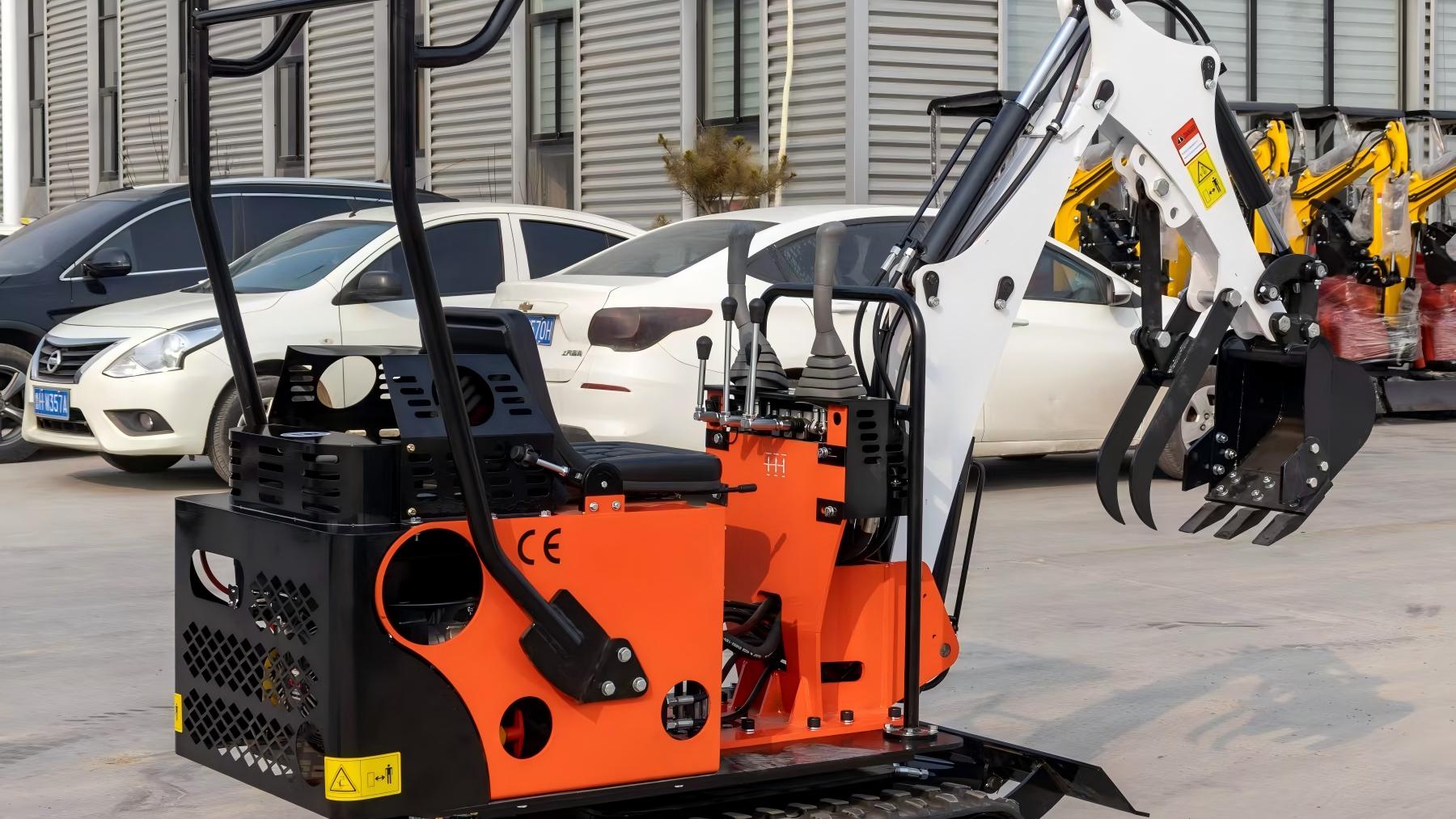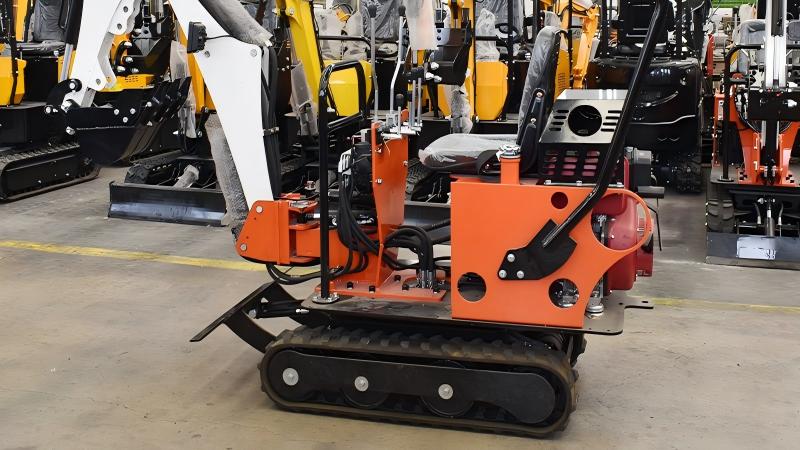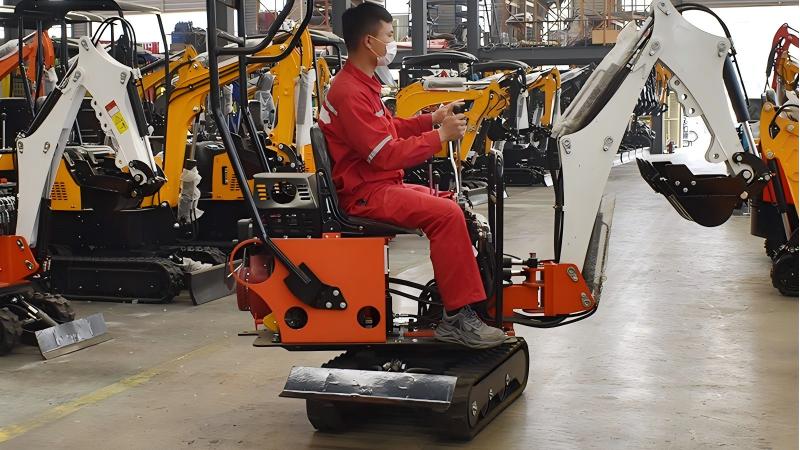Excavators are indispensable heavy machinery in construction, landscaping, demolition, and mining, capable of tasks ranging from digging trenches and foundations to demolition and material handling. While purchasing an excavator represents a significant capital investment, renting offers a flexible and cost-effective alternative for many projects. However, the question of "how much does it cost to rent an excavator?" is multifaceted, with prices varying dramatically based on several key technical and logistical factors. This article will delve into these factors, providing a comprehensive guide to understanding excavator rental costs.
Key Factors Influencing Excavator Rental Costs
The price of renting an excavator is not a fixed sum but rather a dynamic figure influenced by the interplay of several variables:
Excavator Size and Type
The most significant determinant of rental cost is the excavator's size and type. Excavators are categorized by their operating weight and digging capabilities.
Mini Excavators (1-6 tons): Ideal for smaller projects, confined spaces, and tasks like landscaping, digging small trenches, or indoor demolition.
Daily Rates: Typically range from $200 to $650, with smaller models (e.g., 3,500 lb) starting around $197-$300.
Weekly Rates: $750 to $1,500, with an average around $800-$1,000 for 3-5 ton models.
Monthly Rates: $2,000 to $3,750, averaging around $2,000-$3,000. For instance, a 12,000-pound mini excavator might cost around $2,466 per month.
Standard/Medium Excavators (7-25 tons): Suitable for a wider range of medium-duty construction, earthmoving, and utility work.
Daily Rates: $300 to $900+, with 10-ton models starting at $300-$350 and 20-ton models ranging from $400-$500.
Weekly Rates: $1,000 to $2,700+, with 10-ton excavators typically costing $1,000-$1,200 and 20-ton models $1,300-$1,500.
Monthly Rates: $3,500 to $7,200+, with 10-ton models averaging $3,000-$3,500 and 20-ton models $4,000-$5,000.
Large Excavators (26-45+ tons): Designed for heavy-duty applications such as large-scale excavation, demolition of substantial structures, and mining.
Daily Rates: $800 to $2,000+.
Weekly Rates: $2,400 to $4,500+.
Monthly Rates: $6,400 to $12,000+.
Beyond weight, specialized excavators like long-reach excavators or those with specific attachments (e.g., hydraulic hammers, augers, grapples) will incur higher rental costs.
Rental Duration
The length of the rental period significantly impacts the effective daily cost. Rental companies offer tiered pricing:
Daily Rental: The most expensive per day due to administrative and preparation overheads.
Weekly Rental: Offers a significant discount compared to daily rates, often 20-30% cheaper per day.
Monthly Rental: Provides the most cost-effective solution for extended projects, with daily rates being substantially lower than weekly or daily rentals (e.g., a mini excavator's daily cost can drop from $300-$650 to $65-$100 on a monthly rental). Some rental companies offer additional discounts for even longer terms.
Location and Market Demand
Geographic location plays a crucial role. Rental rates can fluctuate based on:
Regional Demand: Areas with high construction activity (e.g., urban centers, booming development zones) often have higher prices due to increased demand and potentially limited supply.
Competition: Markets with numerous rental companies may offer more competitive pricing.
Regulations and Taxes: Local regulations, import taxes, or environmental laws (e.g., requiring reduced emissions engines) can influence rental firm costs, which are then passed on to the renter.
For example, a daily rental for an excavator in a major U.S. city like New York or Los Angeles might hit the upper end of the price range, while a less populated area could offer more negotiable rates.
Additional Costs and Fees
Beyond the base rental rate, several other expenses can add to the total cost:
Delivery and Pickup Fees: These are almost universally applied and can range from $100 to $1,000+ per trip, depending on the excavator's size, weight, and the distance from the rental depot to your job site. For remote locations or machines requiring special permits, these fees can be substantial.
Fuel: Excavators are fuel-intensive machines. While some rental companies might provide a full tank, it's typically the renter's responsibility to refuel before returning the machine. Failure to do so often results in a refueling charge plus the cost of fuel. Fuel consumption can add $25-$50 per 8-hour workday for smaller excavators, and significantly more for larger models.
Insurance: Most rental companies require renters to carry insurance coverage for the equipment against damage, theft, or liability. This can add 10-15% to the base rental cost. Policies can vary, so it's essential to understand what's covered (e.g., equipment damage, third-party liability, breakdown) and any deductibles. Some businesses may have existing general liability or inland marine insurance that covers rented equipment, so it's worth checking with your insurer.
Attachments: While a standard bucket is usually included, specialized attachments (e.g., hydraulic breakers, augers, grapples, rippers, thumb attachments) are typically rented separately and can add a significant daily or weekly cost.
Operator Costs: If you don't have a qualified operator, you'll need to hire one. Operator rates vary but typically range from $30 to $170 per hour, depending on experience, location, and the complexity of the task.
Cleaning Fees: Rental agreements often stipulate that the equipment must be returned in a reasonably clean condition. If the excavator is returned excessively dirty, cleaning fees may be levied.
Environmental Fees/Surcharges: Some companies may add environmental surcharges to cover disposal of fluids, filters, or other hazardous materials.
Overtime Fees: Rental contracts often specify a maximum number of operating hours per day (e.g., 8 hours). Exceeding these hours can result in additional charges, often at a higher hourly rate.
Equipment Condition and Age
Newer, more technologically advanced excavators from reputable brands (like Caterpillar, John Deere, Komatsu, Volvo) might command higher rental rates due to their efficiency, reliability, and advanced features. Older machines, while potentially cheaper, might be less fuel-efficient or prone to unexpected downtime.
Seasonal and Project Timing
Just like any market, demand for excavators is seasonal. Peak construction seasons (typically spring and summer in temperate climates) see higher demand and, consequently, higher rental prices. Scheduling projects during off-peak seasons can sometimes lead to more favorable rates.
Tips for Reducing Excavator Rental Costs
To optimize your excavator rental budget, consider these strategies:
Accurately Assess Project Needs: Avoid over-renting. A mini excavator might suffice for tasks where a standard excavator would be overkill, saving you significant costs. Understand the required digging depth, lifting capacity, and maneuverability.
Plan Ahead and Book Early: Especially during peak seasons, booking in advance can secure better rates and ensure availability.
Compare Quotes: Obtain detailed quotes from at least three different rental companies. Don't just look at the base rate; ensure all potential fees (delivery, fuel, insurance, attachments) are itemized. Differences of 15-20% are not uncommon.
Negotiate Terms: For longer rental durations or if you're renting multiple pieces of equipment, don't hesitate to negotiate for discounts. Many companies offer 5-10% off for extended contracts.
Understand the Contract: Thoroughly read the rental agreement to understand all terms and conditions, including operating hours, fuel policies, insurance requirements, and late return fees.
Manage Fuel Consumption: Operate the excavator efficiently and ensure proper maintenance during the rental period to maximize fuel economy.
Clean the Machine: Return the excavator in a clean state to avoid cleaning surcharges.
Self-Transport (If Possible): For smaller excavators, if you have the appropriate truck and trailer, transporting the machine yourself can eliminate delivery and pickup fees. Be aware of licensing requirements (e.g., CDL for heavier loads).
Consider Long-Term Rental vs. Purchase: For projects spanning many months or if you have a continuous need for an excavator, crunch the numbers to see if purchasing a used or new machine might be more financially viable in the long run.
Conclusion
Renting an excavator offers a flexible and capital-efficient solution for various earthmoving and construction tasks. However, understanding the true cost goes beyond the advertised daily or weekly rate. By carefully considering the excavator's size, rental duration, location, and potential additional costs like delivery, fuel, insurance, and attachments, you can accurately budget for your project. Diligent planning, thorough research, and smart negotiation are key to securing the most cost-effective excavator rental for your needs, ensuring your project proceeds smoothly without unexpected financial burdens.
Post time:Sep-25-2020



